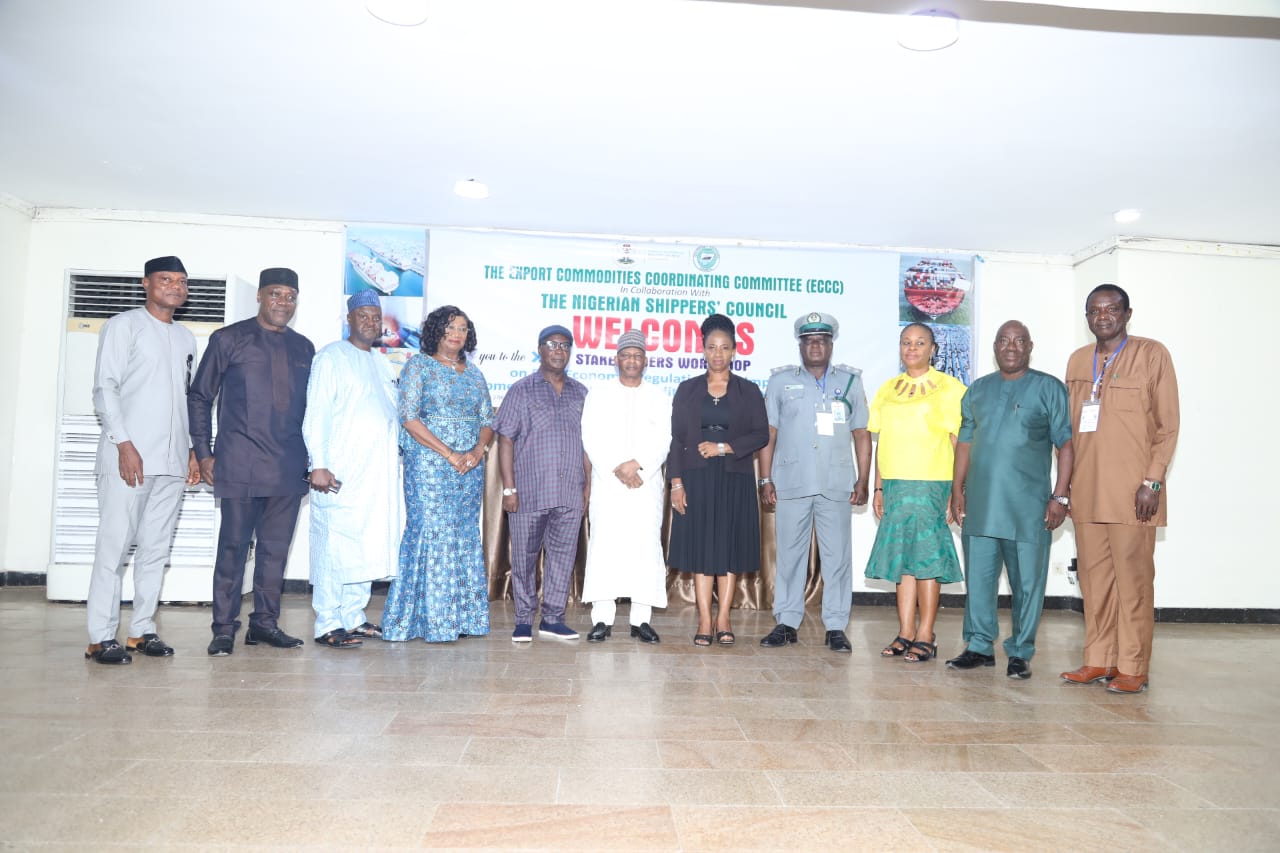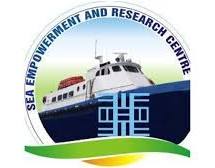International Maritime
FG Says Strategic Collaboration Will Improve Export, Empower Traders

BY EGUONO ODJEGBA

The Federal Government has said that one of the quickest way to achieving improved regulatory framework for improved export output is via collaboration and strategic engagement.
Such collaboration government notes will help to empower exporters, streamlines processes, and unlock the full potential of the nation’s commodity export sector.
The Permanent Secretary of the Federal Ministry of Industry, Trade, and Investment, Amb. Nura Rimi, while speaking at a one day stakeholders workshop organized by the Federal Ministry of Industry Trade and Investment in conjunction with the Nigeria Shippers’ Council held on Wednesday with the theme “Port Economic Regulation and Its Impact on Shipment of Export Commodities through Nigerian Ports” emphasized the pivotal role of the ports in enhancing the nation’s export efficiency and competitiveness.
Rimi, who was represented by the Director Commodities and Export Department, Kaura Irimiya while highlighting the nation’s vast export commodities ranging from oil and gas to agricultural produce, underscores the importance of efficient port operations in driving economic growth.
He said, “Our ability to efficiently export these commodities is crucial for our economic growth and international competitiveness.” However, he noted that the smooth flow of exports heavily relies on ports functioning at their optimal capacity.”
This is even as he said that the Export Commodities Coordinating Committee (ECCC) which was established in 1988 in response to the challenges thrown up by the Structural Adjustment Programme (SAP), led to the privatization of state-owned industries and the abolition of commodity marketing boards.
The development he explained resulted in issues of adulteration and low-grade export commodities, in addition to the country’s mounting financial obligations to International Commodity Organizations.
While noting that the ECCC has remained alive to it’s responsibility,
Rimi urged participants to pay attention to paper presentations by experts and stakeholders and take advantage of what is learnt in the workshop to create improved trade culture in line with the and operational processes.
“Let us use this platform to brainstorm solutions, share best practices, and create a roadmap for a more efficient and competitive commodity export in Nigeria.”
In his welcome address, the Executive Secretary/CEO of the Nigerian Shippers Council, Pius Akutah, highlighted the NSC’s efforts in cost moderation, setting operational standards, and mediating disputes to ensure harmony in the port sector.
He pointed out the high transport costs associated with Nigeria’s agricultural export commodities, attributing these to factors such as inefficient port operations, high cargo handling charges, inadequate infrastructure, and congestion at the ports.
“The high cost of cargo movement can be attributed to various factors including inefficient port operations, high cargo handling charges, inadequate transportation and storage infrastructure, long delays and congestion at the ports, high fuel costs, and inadequate competition in the transport sector,” Akutah explained.
Also speaking, Mr. Glory Onojedo, Director of Consumer Affairs at the NSC emphasized the need to address challenges related to port access, high cargo handling costs, and other inefficiencies to encourage export.
This is even as Onojedo noted that the workshop aim to identify practical solutions to make Nigerian ports more accessible, cost-efficient, and operationally effective.
Speaking further, he remarked that the workshop underscored the importance of effective port economic regulation in fostering a competitive and transparent environment, reducing delays and demurrage charges, and attracting investment in port infrastructure, and ultimately making Nigerian commodities more competitive, globally.
President Shippers Association of Lagos (SAL) Mr. Leo Ogamba in his vote of thanks expressed optimism that the workshop would pave the way for improved communication and collaboration among regulators, port operators and shippers.
Continue Reading





































